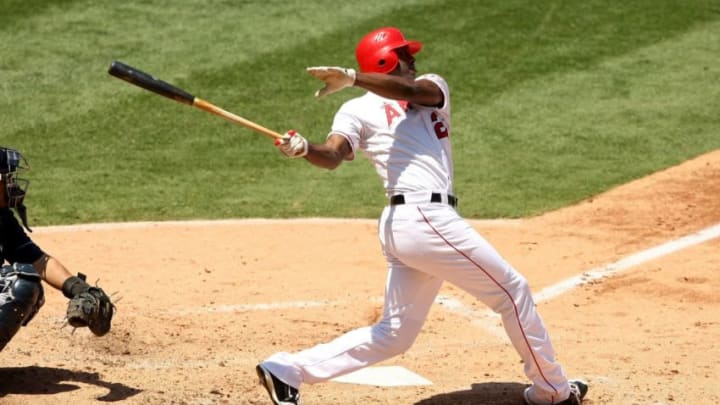
3) Gary Matthews Jr.
5-years, $50 million
When Gary Matthews Jr. signed with the Angels in 2006 for five-years, $50 million, he had a choice of where to play. He could either sign with the Halos, bringing him closer to his 7-year-old son, who lived in nearby Santa Monica, or he could sign the same contract with the San Francisco Giants. Unfortunately, as it turned out for the Halos, he chose Anaheim.
The center fielder was known most for his defensive ability before a breakout season at the plate in 2005 spearheaded a unique market that led to the Angels handing out $50 million and a no trade clause to employ his services. Already 32-years-old when he put ink to paper, his 2005 campaign proved to be the only season in which he hit over .280 (he hit .313/.371/.495 that year).
The Angels eventually traded Matthews to the Mets in 2010 after agreeing to pay $21.5 of the remaining $23.5 million salary on his contract. Matthews walked to the plate a grand total of 65 times in 2010 before being designated for assignment and ultimately retiring.
In three seasons with the Halos, Matthews batted .248/.325/.383 with 30 home runs and a league and park adjusted OPS that was 14% below league average.
